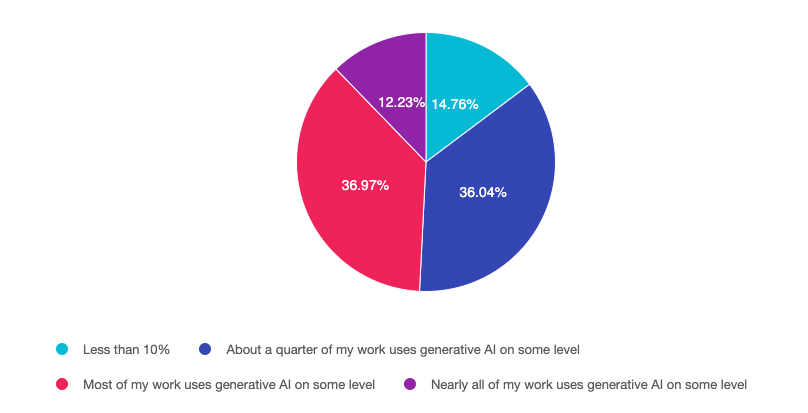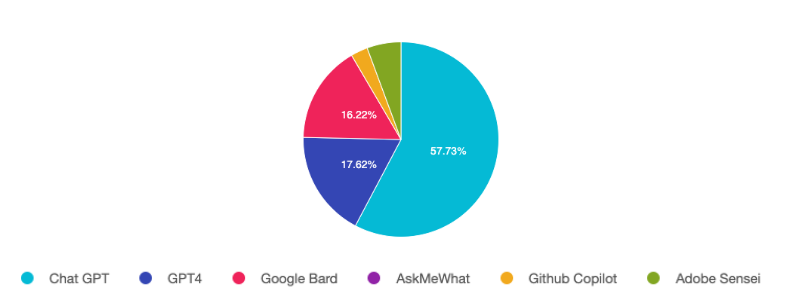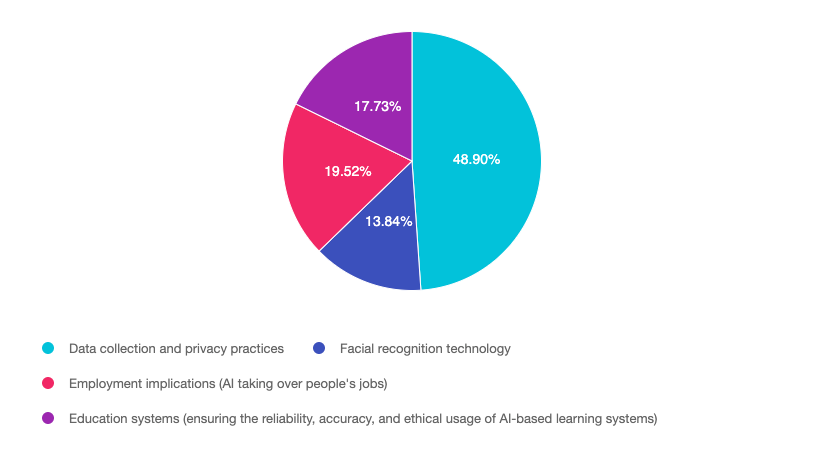Survey Results: People want to embrace Generative AI in the workplace, but they remain concerned despite its inevitability
Results show that business leaders need to prioritize data access and management to allay fears
Generative AI tools are becoming more prominent and accessible, with companies incorporating the tools directly into the programs and software people use. But while both appetite and adoption continue to grow, there are legitimate concerns from workers about the downsides of these tools. To better understand workers' attitudes, usage, and concerns with generative AI tools, Zoho polled 4,540 global workers across the United States, United Kingdom, Canada, France, Germany, and Netherlands in August 2023**. Here are some of the most salient results, as told by workers who primarily use computers to perform their jobs across all industries and demographics:
Key Highlights
- 78% of U.S. respondents say they use generative AI tools, a figure that hits 92% among tech workers, specifically
- 96% of workers are open about their use of generative AI tools with colleagues and management
- In the U.S., 81% of all respondents are concerned about how these tools expose their data
- 35% of U.S. respondents aren't aware of any government regulations or guidelines governing the use of AI, and 49% have concerns about management of user data collection and privacy
- 84% of U.S. workers believe generative AI will become an ingrained, openly accepted part of their job within the next year
- 84% of U.S. workers would trust the tools more if they were baked into the software programs they use for work
AI tools are welcomed with open arms...so far
AI continues to weave its way into the fabric of work. According to survey data conducted by Zoho, Generative AI tools are applied to 'most' work-related tasks for 37% of US respondents, with 36% reporting "about a quarter" of their daily work are touched by AI. Among tech workers specifically, 36% note that AI touches 'nearly all' aspects of their job, compared the 12% of all US workers across all industries.

Generative AI use is gaining significant momentum, but are business leaders ready?
Zoho survey notes security and user trust are proving to be major roadblocks for workers. In the U.S., 81% of people are concerned about how these tools expose their data and one in five (20%) people are worried AI will take over their jobs at some point. If business leaders want to build trust with employees, they'll need to adopt software with integrated generative AI tools. When they are embedded in the foundational layer of the business tech stack workers would inherently trust them more (84% of workers in the U.S.; 74% global).
Generative AI adoption will continue to be the trend across business software in the future. Globally, 58% of workers are aware of the generative AI tools that are built into their work programs. That figure balloons to 73% of workers in U.S.
Positive perception within the workplace
Adoption and perception of generative AI tools is overwhelmingly positive, with 96% of workers being open about their use of these tools. ChatGPT has the edge over rival tools, with 58% of workers identifying it as their tool of choice, compared to GPT4 (18%), and Google's Bard (16%). Business leaders are embracing it and workers are aggressively incorporating it in their work.

Governance is sporadic and poorly communicated
AI governance is still a gray area, as in who is responsible for what and the level of oversight that makes sense to both business leaders and workers, and potentially, government regulation down the line. More than a third of Zoho's US respondents (35%) aren't aware of any government regulations or guidelines governing the use of AI. The waters are even murkier globally, with 52% of workers unaware of AI-specific rules, regulations or best practices.
Specific areas where workers want oversight and tighter management concern data collection and privacy practices, with 49% of U.S. workers choosing it as their top priority, followed by safeguarding jobs from being replaced by AI (20%); ensuring the reliability, accuracy, and ethical usage of AI-based learning systems (18%); and facial recognition technology (14%).

The proliferation of generative AI in the workplace is promising
In the U.S., 84% of workers polled by Zoho believe generative AI will become an ingrained, openly accepted part of their job skills within the next year; globally, 71% agree. Tech leaders need to invest in making the tools accessible, trusted, and safe. This could look like clear communication about what data is being used to train AI algorithms and what's not. Ultimately, creating data and accessibility guardrails will be key to the success of AI for workers, regardless of industry or role.
Unsurprisingly, millennials are leading the charge for generative AI adoption, making up 67% of workers polled. Generational adoption drastically drops from there, with only 15% of GenZ and 14% for GenX. Baby Boomers have little to no interesting incorporating these tools into their work, with only 3% reporting they've tried it. Beyond the U.S., more GenZ and GenX workers are dabbling with ChatGPT and its counterparts -- 22% for both generations -- but Baby Boomer usage doubles (6%).
Looking ahead
Here at Zoho, we're seeing a lot of interest in AI-powered tools too, beyond analysis and engineering for large swaths of data. Users are using it for everything from composing email, to summarizing meeting notes, and curating marketing and social media copy. Technology providers like Zoho are incorporating generative AI tools into the software that keeps business running, by combining ChatGPT with Zia's existing AI capabilities to support workers and business.
ChatGPT and tools like it will have a place in nearly every business and industry. And the innovation will evolve to support both the most basic of tasks, and the most complex decision-trees needed to make individuals and businesses as a whole, successful. The appetite for generative AI in the workplace is growing, but for leaders to truly ingrain these tools to benefit business, they will need to build worker trust by adopting tools that focus on privacy, with a heavy focus on building the appropriate infrastructure of data access and management.
**Zoho AI Survey Methodology (August 2023): Zoho recently conducted research on the adoption and attitudes of Generative AI solutions in the workplace, focusing on privacy concerns, adoption, tools, and transparency with colleagues and leadership. We surveyed 4,540 global workers across six countries, generating 1,000 responses each for U.S., Canada, and UK; and 500 responses each for France, Germany, and Netherlands. The above analysis is based on both U.S. and Global data points for Zoho Survey results, with one statistic pulled from the Tech Worker-specific sample set. Raw survey data can be viewed here.